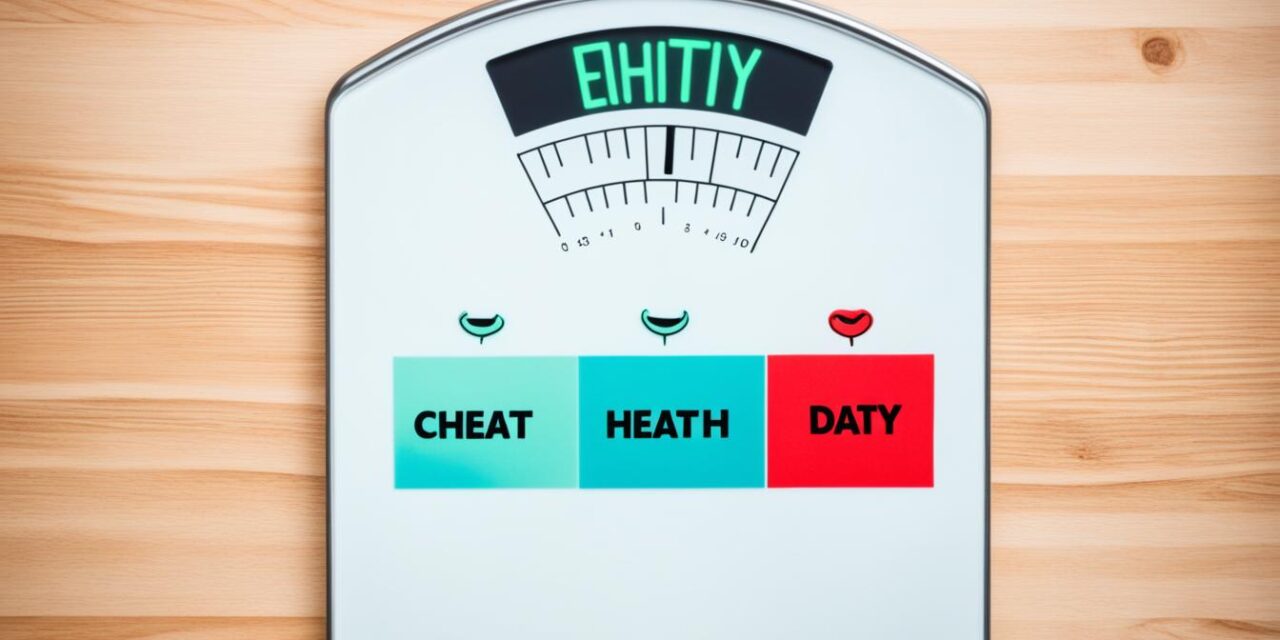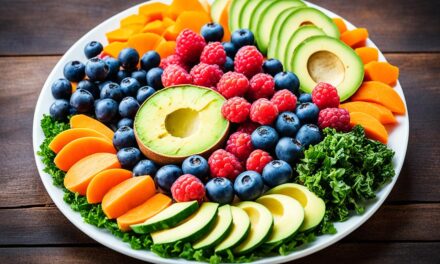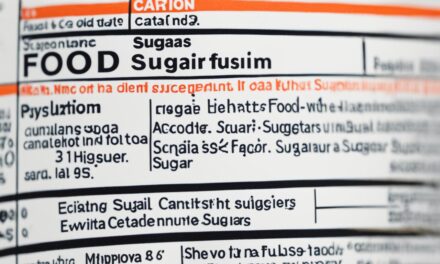Picture this: It’s been a long week, filled with nutritious meals, intense workouts, and unwavering discipline. You’ve stuck to your weight loss plan with unwavering determination, but now, a familiar craving starts to creep in. The thought of indulging in your favorite treat is almost too tempting to resist. But you wonder, will this cheat day help or hurt your weight loss progress? Is it worth it?
We’ve all been there, caught between the desire to treat ourselves and the fear of undoing our hard work. The concept of cheat days has become popular among weight loss enthusiasts, promising a much-needed break from dietary restrictions. But do cheat days really have a positive impact on weight loss, or do they hinder our progress?
It’s time to uncover the truth behind cheat days and their effect on weight loss. By understanding the benefits and drawbacks, you can make informed choices on how to incorporate cheat days into your journey towards a healthier you.
Key Takeaways:
- Cheat days can have both benefits and drawbacks when it comes to weight loss.
- Incorporating cheat days into your diet can provide psychological benefits and help you satisfy cravings.
- Frequent cheat days can hinder progress and lead to overindulgence.
- Planning your indulgences and finding a balance is crucial for long-term success.
- Cultivating a healthy relationship with food is key to incorporating cheat days sustainably.
The Benefits of Cheat Days
Are you worried that indulging in cheat days will derail your weight loss journey? Think again! Incorporating cheat days into your diet can actually have several benefits that can support your overall weight loss efforts.
Research has shown that after a cheat meal, your body kicks into high gear and increases its metabolism. This means that you’ll be burning calories at a faster rate, which can contribute to weight loss. The reason behind this metabolic boost is an increase in leptin production, a hormone responsible for maintaining energy balance in the body.
But the benefits don’t stop there. Cheat meals can also help you stick to your eating plan by providing a planned splurge of calories. By allowing yourself the opportunity to satisfy your cravings, you reduce the risk of experiencing unplanned binge-eating episodes. This controlled indulgence can help you maintain a sense of balance and prevent feelings of deprivation.
Furthermore, cheat meals can provide a much-needed psychological boost. Let’s face it, sticking to a long-term weight loss plan can be challenging. But knowing that you have a cheat day or a cheat meal to look forward to can make it easier to stay motivated and dedicated. It’s like a reward for all your hard work and discipline.
Remember, moderation is key when incorporating cheat days into your diet. It’s important to strike a balance between enjoying your favorite foods and maintaining control over portion sizes and overall calorie intake. By doing so, you can fully reap the benefits and make cheat days a sustainable part of your weight loss journey.
The Benefits of Cheat Days
| Benefits | Explanation |
|---|---|
| Faster Calorie Burning | Research has shown that after a cheat meal, the body increases its metabolism, leading to faster calorie burning. |
| Controlled Indulgence | Cheat days allow you to satisfy cravings and prevent unplanned binge-eating episodes. |
| Psychological Boost | Knowing that you have a cheat day to look forward to can make it easier to stay motivated and dedicated to your weight loss plan. |
Drawbacks of Cheat Days
While cheat days can be a delightful break from your weight loss routine, they also come with their fair share of drawbacks. It’s important to be aware of these drawbacks to make informed choices and avoid any setbacks in your progress. Here are some key drawbacks to consider:
1. Overindulgence and Weight Loss Plateaus
One of the main pitfalls of frequent cheat days is the potential for overindulgence. It’s easy to get carried away and consume large portions or unhealthy foods, which can lead to exceeding your calorie limit for the day. This can slow down your weight loss progress or even result in weight gain. It’s crucial to strike a balance between enjoying your favorite foods and staying mindful of portion sizes to ensure you don’t sabotage your efforts.
2. Psychological Challenges
“Cheat days can be a double-edged sword. They can provide temporary satisfaction, but they can also trigger feelings of guilt or a loss of motivation.”
For some individuals, cheat days can be psychologically challenging. The guilt associated with indulging in forbidden foods or deviating from your strict eating plan can be discouraging. It’s important to maintain a positive mindset and remember that one day of indulgence doesn’t define your overall progress. Find ways to enjoy your cheat days guilt-free and without compromising your motivation to reach your weight loss goals.
3. Disrupting Healthy Eating Habits
Consistency is key when it comes to long-term weight loss. Frequent cheat days might disrupt your healthy eating habits and make it harder to stick to your overall plan. Breaking the routine of balanced and nutritious meals can make it more challenging to get back on track and might even trigger additional cravings. It’s important to find a balance between enjoying your favorite treats and maintaining a healthy eating pattern that supports your weight loss goals.
Keep in mind that the drawbacks of cheat days can vary from person to person. It’s essential to listen to your body and find a sustainable approach that works for you. By finding the right balance, you can enjoy the benefits of cheat days without hindering your weight loss journey.
Strategies for Incorporating Cheat Days
To make the most of cheat days without sabotaging your weight loss efforts, you need a game plan. Nutritionists recommend following the 80/20 rule, where 80% of your meals adhere to your eating plan and 20% allow for flexibility and indulgence. This approach ensures you stay on track while still being able to enjoy occasional treats.
Instead of dedicating an entire day to cheat meals, try satisfying a single craving at a time. This can be more sustainable and controlled, preventing you from going overboard. By honing in on a specific indulgence, you can fully enjoy it without derailing your progress.
Timing is everything when it comes to cheat days. Plan your indulgent meals around intense workout days. This way, the extra calories can be burned off more effectively, reducing the impact on your weight loss goals.
And remember, forgiving yourself for indulging is crucial. One bad meal or day does not define your weight loss journey. It’s important to move on and stay focused on your long-term goals. So, don’t beat yourself up over a cheat meal. Instead, use it as motivation to get back on track and continue making progress.
Strategies for Incorporating Cheat Days: Key Points
- Follow the 80/20 rule: 80% of your meals should adhere to your eating plan, while 20% can be more flexible and indulgent.
- Satisfy one craving at a time instead of devoting an entire day to cheat meals.
- Plan cheat meals around intense workout days to burn off the extra calories more effectively.
- Forgive yourself for indulging and stay focused on your long-term goals.
| Benefits of Incorporating Cheat Days | Drawbacks of Frequent Cheat Days |
|---|---|
| Increased metabolism | Potential setback in weight loss progress |
| Psychological satisfaction and motivation | Overindulgence and potential guilt |
| Satisfies cravings | Psychological challenges for some individuals |
The Psychological Impact of Cheat Days
The term “cheat days” may sound enticing, but it can have a surprisingly negative psychological impact on your wellbeing. When we label certain foods as “cheating,” it creates a sense of guilt and moral judgment surrounding our food choices. This can lead to distorted body image and unhealthy relationships with food.
By restricting ourselves during the week and using cheat days as a reward, we unintentionally perpetuate a cycle of guilt, overeating, and restriction. This unhealthy pattern can sabotage our weight loss goals and make it difficult to maintain a balanced approach to eating.
Instead, it’s crucial to adopt a more mindful and flexible approach. Allowing ourselves to enjoy all foods in moderation without judgment or guilt is key. By embracing a healthier mindset, we can break free from the restrictive mindset and establish a more positive relationship with food and our bodies.
Remember, you are in control of your choices and have the power to redefine what “cheating” means to you. Food should never be associated with guilt or shame but rather with nourishment and enjoyment.
Embracing a healthier mindset regarding cheat days can have a profound impact on your overall well-being. By practicing self-compassion and focusing on nourishing your body, you can cultivate a positive body image and break free from the guilt and overeating cycle associated with cheat days.
| Psychological Impact of Cheat Days | Cycle of Guilt and Restriction | Positive Mindset and Body Image |
|---|---|---|
| Leads to guilt and moral judgment surrounding food choices | Restriction during the week and overeating on cheat days | Embracing a healthier mindset and positive body image |
| Causes distorted body image and unhealthy relationships with food | Sabotages weight loss progress and makes it difficult to maintain balance | Practicing self-compassion and focusing on nourishment |
| Breaking free from the guilt and overeating cycle associated with cheat days |
Conclusion
So, you’ve reached the end of our exploration into the truth about cheat days and their impact on weight loss. As we’ve discovered, incorporating cheat days into your diet can have both benefits and drawbacks.
On the one hand, cheat days can provide psychological benefits by satisfying your cravings and giving you a much-needed break from your weight loss routine. They can also potentially increase your metabolism, helping you burn calories more efficiently.
However, it’s important to approach cheat days in a balanced and mindful way. Planning your indulgences, finding sustainable strategies, and cultivating a healthy relationship with food are all essential steps in incorporating cheat days into your weight loss journey.
Remember, the best diet is one that you can stick to long-term and enjoy in a balanced manner. So, as you navigate your weight loss goals, don’t be afraid to give yourself the occasional treat. Just remember to do so in moderation and with a conscious awareness of your overall health and well-being.
FAQ
Do cheat days help or hurt your weight loss?
What are the benefits of cheat days?
What are the drawbacks of cheat days?
What strategies can help incorporate cheat days into a weight loss plan?
What is the psychological impact of cheat days?
What is the truth about cheat days and weight loss?
- https://www.nm.org/healthbeat/healthy-tips/nutrition/the-skinny-on-cheat-days
- https://www.abbeyskitchen.com/truth-about-cheat-day/
- https://www.transparentlabs.com/blogs/all/are-cheat-days-good-for-weight-loss
![]()














Recent Comments